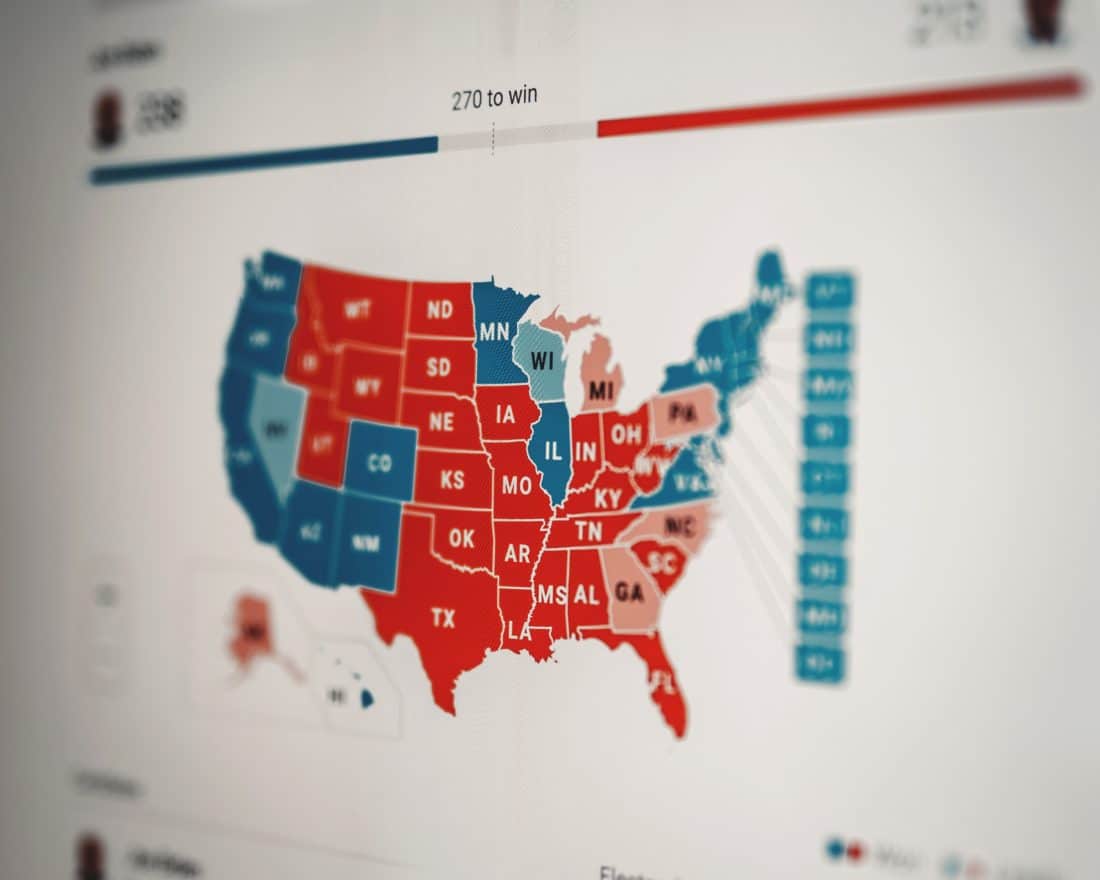The 2020 U.S. presidential election was not only incredibly close, it was also incredibly expensive. It’s estimated that $6.6 billion was spent by the campaigns, parties, and PACs this cycle.
It’s unknown exactly how much of that spend went to social media, but the number is huge. Between mid-April and late October the presidential candidates and candidate-supporting PACs spent more than $193 million on Facebook advertising alone.
The specific approaches of the two major candidates will be analyzed and debated for years to come. However it appears that both Joe Biden and Donald Trump had sophisticated social media strategies that effectively reached and motivated their intended audiences.
So, what can marketers learn from these very big and very costly campaigns? Here are five key takeaways:
Social media influencers are the medium
Marketers have all too often seen influencers as being supplementary to core social media strategies. However, the 2020 presidential election highlighted an important fact. Influential individuals are at the very heart of social networks. Their content is often essential to achieving reach and driving engagement.
As data point journalist Kevin Roose shared in August: “The conservative commentator Ben Shapiro has gotten 56 million total interactions on his Facebook page in the last 30 days. That’s more than the main pages of ABC News, NBC News, The New York Times, The Washington Post and NPR combined.”
This trend could be seen throughout the summer and fall, with posts from individuals like Ben Shapiro (on the right) and Shaun King (on the left). The two consistently outperformed those from news organizations and the candidates themselves.
It’s still valuable to build your own fanbase
In the early days of social media the most effective strategy was to build an audience through consistent posting and engagement. This approach fell somewhat out of favor as the platforms shifted to a pay-to-play model and organic reach dropped.
The election showcased that investing in building your own fanbase still holds immense value. Donald Trump’s audience of more than 80 million Twitter followers ranks as the eighth biggest account in the world. This gave him 24/7 access to voters and enabled him to speak to his base (mostly) unfiltered. Similarly, Barack Obama’s Twitter audience of more than 118 million followers ranks as the most-followed account worldwide. This enabled him to easily and directly advocate for his former VP.
Being fast and funny can pay off
It’s no secret that a quick, witty social media post in response to a current event can resonate. Case in point: Oreo’s iconic ‘Dunk in the Dark’ tweet from the 2013 Super Bowl entered the zeitgeist thanks to its timing with a power outage.
The 2020 presidential election reaffirmed this fact when the Democrats savvily used a pesky insect to generate buzz. After a fly landed on the well-coiffed hair of Mike Pence during the vice presidential debate, Joe Biden’s social media team immediately posted a funny little tweet to drive donations and rapidly started selling ‘Truth Over Flies” fly swatters.
Combine a platform-specific strategy with paid media
As social media has evolved, two key things have become clear. First, it’s essential to tailor your posts to specific platforms rather than use the same content everywhere. Second, in order to consistently reach large audiences you’ll most likely have to invest in paid distribution.
The Trump campaign showed it understood both of these facts with its YouTube masthead takeover in early November. The exact cost wasn’t disclosed, but the big splash highlighted that the Republicans knew they had to spend significantly on social to be seen.
The videos included in the effort showcased the campaign’s strong understanding of the platform. The campaign promoted the ‘Hell or Highwater’ clip containing bold text overlay and accompanied by a perfectly YouTube-y thumbnail.
Spark emotion and give audiences a reason to care
Finally, the 2020 U.S. presidential election highlighted that while tactics are important, the core driver of success on social media is whether your content is able to spark emotion.
A good example of this is The Lincoln Project. The Biden-supporting group of conservatives garnered lots of attention with its quick-fire parodies and barbed social media responses. However, its best-performing YouTube video wasn’t snarky. It was an earnest and emotional portrayal of how Covid-19 has impacted people’s day-to-day lives.
Along similar lines, the nonpartisan #GoodToVote social media campaign drove more than 160,000 voter registrations by providing fun incentives (such as having Samuel L. Jackson teach you to swear in 15 languages). Ultimately, the effort succeeded not because of savvy targeting or flashy production, but simply because it gave people a reason to care.
Photo by Clay Banks on Unsplash





Nuhu Aliyu on
Strategy of building engineering